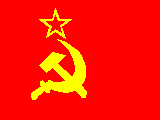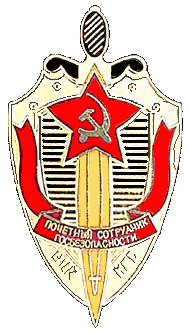





 Policy
PolicyThe intensity of KGB campaigns against political crime varied considerably over the years. The Khrushchev period was marked by relative tolerance toward dissent, whereas Brezhnev reinstituted a harsh policy. The level of political arrests rose markedly from 1965 to 1973. In 1972 Brezhnev began to pursue d�tente, and the regime apparently tried to appease Western critics by moderating KGB operations against dissent. There was a sharp reversal after the Soviet invasion of Afghanistan in December 1979, and arrests again became more numerous. In 1986, Gorbachev's second year in power, restraint was reintroduced, and the KGB curtailed its arrests.
The forcible confinement of dissidents in psychiatric hospitals, where debilitating drugs were administered, was an alternative to straightforward arrests. This procedure avoided the unfavorable publicity that often arose with criminal trials of dissenters. Also, by labeling dissenters madmen, authorities hoped to discredit their actions and deprive them of support. The KGB often arranged for such commitments and maintained an active presence in psychiatric hospitals, despite the fact that these institutions were not under its formal authority. The Gorbachev leadership, as part of its general program of reform, introduced some reforms that were designed to prevent the abuse of psychiatric commitment by Soviet authorities, but the practical effects of these changes remained unclear in 1989.
In addition to arrests, psychiatric commitment, and other forms of coercion, the KGB also exercised a preventive function, designed to prevent political crimes and suppress deviant political attitudes. The KGB carried out this function in a variety of ways. For example, when the KGB learned that a Soviet citizen was having contact with foreigners or speaking in a negative fashion about the Soviet regime, it made efforts to set him or her straight by means of a "chat." The KGB also devoted great efforts to political indoctrination and propaganda. At local and regional levels, KGB officials regularly visited factories, schools, collective farms (see Glossary), and Komsomol organizations to deliver talks on political vigilance. National and republic-level KGB officials wrote articles and gave speeches on this theme. Their main message was that the Soviet Union was threatened by the large-scale efforts of Western intelligence agencies to penetrate the country by using cultural, scientific, and tourist exchanges to send in spies. In addition, the KGB claimed that Soviet citizens were barraged by hostile propaganda from the West as part of an effort to undermine the Soviet system.
Another important facet of KGB preventive work was censorship of literature and other media, which it exercised at both an informal and a formal level. The KGB censored informally by harassing writers and artists, arranging for their expulsion from professional organizations or from their jobs, and threatening them with prosecution for their unorthodox views. Such forms of intimidation forced many writers and artists to exercise selfcensorship by producing only what they thought would be acceptable. The KGB maintained strong surveillance over the Union of Writers, as well as over the journalists' and artists' unions, where KGB representatives occupied top administrative posts.
The KGB played an important role in the system of formal censorship by taking part in the work of the Main Administration for Safeguarding State Secrets in the Press (Glavnoe upravlenie po okhrane gosudarstvennykh tain v pechati--Glavlit). Some Western specialists believe that at least one of Glavlit's deputy chiefs was a KGB official and that the KGB assisted in Glavlit's compilation of its Censor's Index, a thick volume, updated frequently, listing all military, technical, statistical, and other subjects that could not be publicized without special permission from the Central Committee.
Another important internal security task of the KGB was to provide the leadership with information about the dissident movement and the political attitudes and opinions of the public as a whole. This task by its very nature gave the KGB influence over policy, particularly because Soviet leaders had no direct contact with dissidents and nonconformists and thus relied on KGB information about motives and foreign connections and on its estimates of numbers and support for various groups. The situation probably changed somewhat after Gorbachev introduced the policy of glasnost' in early 1987. After that the KGB no longer had a monopoly on information about the country's political mood because Soviet citizens expressed their views more freely in the press. Nevertheless, the KGB's information gathering continued to be important because direct criticism of the political system was suppressed. Computers no doubt improved KGB methods of processing information and conducting research.
The KGB was given considerable latitude in carrying out the party leadership's policy toward dissent. In other words, the Politburo decided on broad policy guidelines, but the KGB made the day-to-day decisions. Many dissidents, for example, viewed the KGB as extremely powerful and as enjoying considerable autonomy in implementing regime policy. Although the party leadership clearly determined the general policy toward dissent, it had an interest in promoting the idea that the KGB was responsible because the KGB could then be blamed for the injustices suffered by citizens. Furthermore, the image of the KGB's omnipotence has no doubt helped to prevent anti-Soviet behavior. As Seweryn Bialer, a Western Sovietologist, observed of the Soviet system, "Without doubt the key to stability has been the high visibility of the coercive apparatus and policies."
Data as of May 1989
